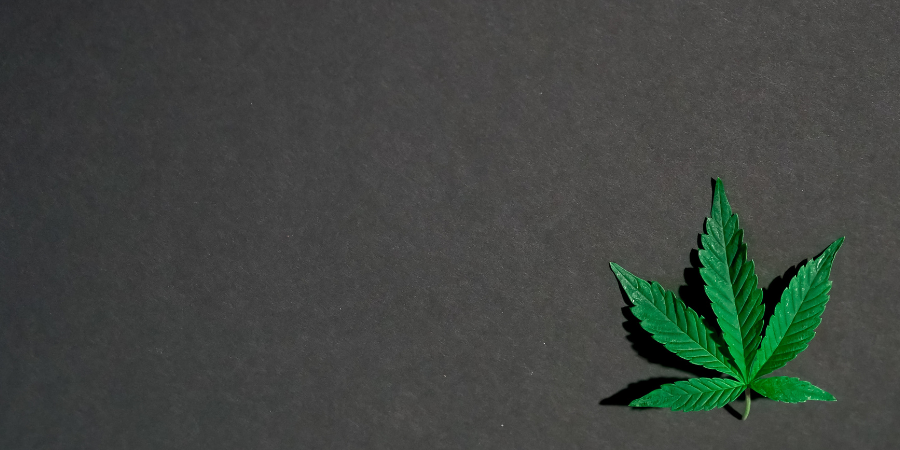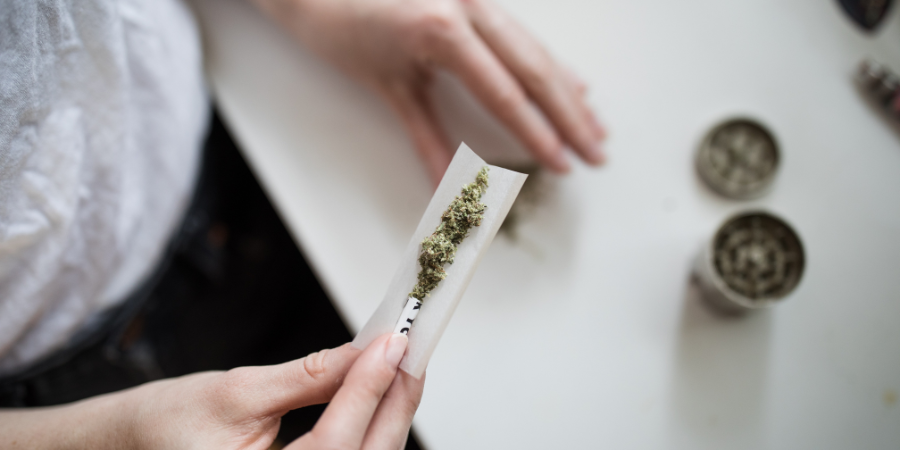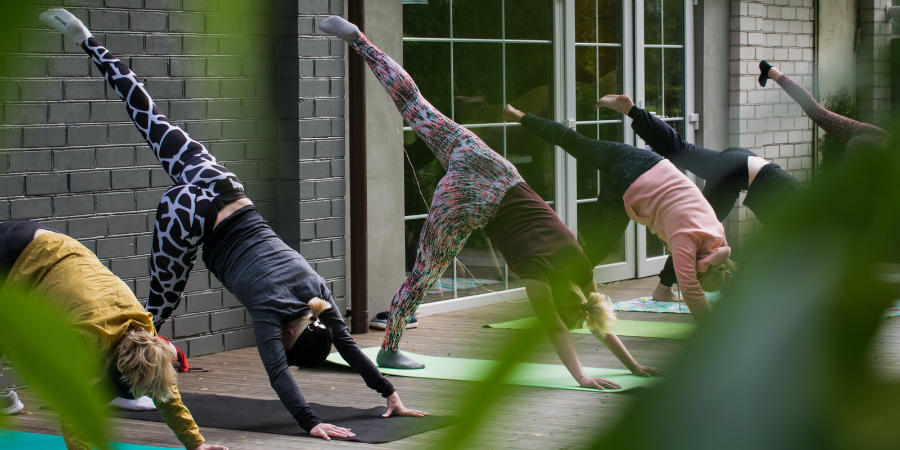
Written by:

Medically Reviewed by:
Last Updated:
October 13th, 2025
Cannabis rehab
Cannabis is the most used illegal drug in England and Wales, with about 6.8% of adults aged 16–59 (roughly 2.3 million people) using it in the past year. Among 16–24s, that figure rises to a shocking 13.8%. What many of these people don’t realise, however, is that cannabis can be very harmful. Many people use it every day, and this can lead to both cannabis addiction and act as a gateway to other, even more dangerous drugs. That is why inpatient cannabis rehab is available at all UKAT centres, so you can begin recovery with expert care by your side.

What is cannabis rehab?
“Cannabis rehab” can sometimes refer to a full recovery cannabis addiction treatment programme, the second therapy stage of the programme, or even the centre where treatment takes place. All are correct, but to clear up the confusion, here is how treatment works at UKAT, with cannabis rehab therapy happening in stage two:
- Cannabis detox to manage the cravings, mood swings, and fogginess that come with THC withdrawal
- Cannabis rehab therapy, to talk openly about why you have been relying so much on weed
- Ongoing treatment services so you have guidance and support whenever challenges return
UKAT has nine cannabis rehab centres, with all three of those equally important phases offered in every comprehensive treatment programme. This means that every aspect of addiction can be addressed, and when it’s time to go home, you will have a full plan in place for facing life without cocaine.
Who is cannabis rehab beneficial for?
Cannabis rehab is for people at every stage of dependency, from those who have smoked every day for years to others who may have only just realised their use is slipping out of control. It is also for people who started using cannabis to relax or manage stress but now find that it’s causing more harm than help.
Rehab can be particularly life-changing for young people, who make up a large proportion of those in treatment. Their families can also see major benefits after struggling with the tension and heartbreak that cannabis addiction so often creates.
The latest figures show that 28,845 people in England started treatment for cannabis in 2022–23, which is among the highest for any type of drug. But even if you’re not sure whether your situation is “bad enough” for cannabis rehab, UKAT is here to listen and help you figure out the next step.
Why is cannabis rehab an important step in recovery?
Cannabis rehab is vital because long-term use can affect your mental health, strain relationships, and impact your work or education. Around one in five adults seeking drug treatment in the UK report problems with cannabis, highlighting how common cannabis addiction can be.
Young people are particularly vulnerable. Many entering addiction treatment under 18 are doing so for cannabis-related issues, making early intervention crucial. Heavy or high-potency cannabis use can contribute to depression, anxiety, paranoia, and, in some cases, psychosis. Among adults seeking treatment for the first time, a significant proportion experience co-occurring mental health and drug addiction issues, which can worsen if cannabis use continues untreated.
Mental health is one of the biggest concerns in heavy and high-potency cannabis use, as it can cause depression, anxiety, paranoia, and even psychosis. In adult rehab treatment services, around 72% of first-time patients have a co-occurring mental health and addiction issue. These problems will only get worse if cannabis addiction goes untreated, as it will keep fuelling other psychological conditions.
Cannabis rehab also helps reduce the risk of legal consequences. Cannabis remains illegal in the UK, and possession or supply can lead to warnings, fines, or criminal records. Rehab offers a structured way to stop using cannabis, develop healthier coping strategies, and plan a calmer, more stable life, protecting both your health and your future.
How do I know if I need cannabis rehab?
Because cannabis doesn’t cause the same immediate crises as some other drugs, many people downplay the impact it is having on them. But dependency can creep up slowly, and by the time you notice something is wrong, cannabis may already be affecting your health, relationships, and future. To get some clarity, ask yourself these questions:
- Do you feel uneasy or irritable if you try to go a day without cannabis?
- Have you promised yourself that you would cut down, but fail to keep your promise?
- Is cannabis affecting your focus at work, school, or home?
- Do you need more cannabis now than before to get high or see off cravings?
- Have people close to you told you they are worried about how much cannabis you’re using?
- Are you spending more money on cannabis than you can really afford?
- Has cannabis started to feel less like a choice and more like something you have to do?

If several of these sound familiar, it may be time to seriously consider cannabis rehab. These are early signs, but if left unchecked, they can grow into much more serious issues.
Private cannabis rehab vs. NHS cannabis rehab
For people struggling with cannabis, the kind of help you get can make a huge difference. Getting help for cannabis through the NHS usually means outpatient treatment, where you will have scheduled group therapy sessions but continue living at home.
That might be okay if you have a lot of support from your friends and family, but being around the same people, places, and habits can make it almost impossible to stay away from cannabis. On top of that, delays to NHS services are common, so you may be waiting a long time before treatment even starts.
Private cannabis rehab with UKAT provides a very different experience. You move into a safe environment with no access to cannabis, where every part of your day is focused on recovery. Staff are there to guide you through cravings, help manage anxiety or paranoia, and support you when motivation dips.
Each day follows a routine that helps you rebuild structure. This includes meals at regular times, one-to-one therapy, group sessions, and activities that teach you something new about yourself. This steady rhythm makes it far easier to get through the early weeks and start feeling like yourself again.
In the end, you need to make the final decision. But while outpatient care can help some people, the immersive experience of inpatient cannabis rehab can be key to ending long-term drug use.
Therapies used in cannabis rehab
In cannabis rehab, therapy is what helps people move from simply stopping to truly changing. Many people arrive at a UKAT recovery centre feeling tired, unmotivated, or anxious about the future. Cannabis rehab therapy gives you the opportunity to talk through those worries, look at how cannabis has shaped your life, and start to make changes and better choices.
Across UKAT centres, therapy comes in many different forms. Individual counselling gives you the chance to explore your personal story in depth, while group sessions provide connection and encouragement from others on the same path. There are also behavioural therapies like CBT and DBT and for people whose cannabis use is linked to past difficulties, trauma therapy is also offered.
Relationships can suffer a lot under the strain of cannabis addiction, so family therapy is part of the programme too. These sessions bring loved ones together to talk honestly and begin repairing the damage. To support wider wellbeing, you may also take part in holistic therapies such as mindfulness, creative activities, and physical exercise, which provide healthier outlets for stress and anxiety.
Every UKAT cannabis rehab centre has its own balance of therapies, but all are designed to support long-term recovery. If you would like to learn more, our team can explain the options and guide you toward the right centre for you.

Cannabis relapse prevention and aftercare
Leaving rehab is only the beginning of recovery. That is why UKAT offers a comprehensive treatment pathway that includes option beyond your primary treatment care, including;
With cannabis, relapse often comes from the pull of routine, like smoking at certain times of day, with certain people, or as a way of dealing with stress. Research shows that 40–60% of people with substance use disorders relapse, so preparing for those moments is vital.
At rehab with UKAT, cannabis relapse prevention is built into your programme. You will spend invaluable time with your therapists looking closely at your personal triggers and practising responses that work for you. That may mean learning what to do when cravings strike at night, how to cope with anxiety without cannabis, or how to manage friendships that revolve around smoking. Planning for these challenges in advance gives you the best chance of staying on track.
After you leave, our support continues. Every UKAT client who completes treatment with us, receives aftercare and a place in our Alumni network. This community of peers keeps you connected and supported, so you never have to face cannabis relapse risks alone.
What are the long-term benefits of UKAT’s cannabis rehab programmes?
The first benefit of cannabis rehab is that it gives you back control of your life. When you stop using, your thoughts become clearer, your decisions less clouded, and rather than watching your life drift by, you can start to feel more present again.
Your body begins to heal quickly after you quit weed. Within just a few days, you should see your energy return, your appetite balance, and the chest tightness and heavy lungs from smoking should begin to clear up.
Cannabis rehab also helps with the mental toll, which can be enormous with addiction. Heavy cannabis use is linked to anxiety, paranoia, depression, and even an increased risk of schizophrenia but all of this can improve through cannabis rehab.
For families, the difference can also be life-changing as cannabis rehab gives you a safe space to repair trust, speak honestly, and rebuild relationships that may have been strained for years. Families see the change, trust starts to rebuild, and home life feels calmer. And there’s relief in knowing you’re no longer carrying the risk of fines, arrest, or a criminal record for possession. Rehab gives you the chance to live free from that shadow.
How to find cannabis rehab near me?
Cannabis may not carry the same overdose risks as other drugs, but it can still damage your mental health, relationships, and future prospects. At UKAT’s cannabis rehab centres, you will find the perfect place to break the cycle and start fresh. Our cannabis rehab programmes combine medical support, therapy, and aftercare so you’re never left to cope alone. Contact us today and take the first step toward lasting recovery.
Frequently asked questions
(Click here to see works cited)
- Office for National Statistics. Drug Misuse in England and Wales: Year Ending March 2024. ONS, 2024, https://www.ons.gov.uk/peoplepopulationandcommunity/crimeandjustice/articles/drugmisuseinenglandandwales/yearendingmarch2024.
- UK Government. Adult Substance Misuse Treatment Statistics 2022 to 2023 Report. GOV.UK, 2023, https://www.gov.uk/government/statistics/substance-misuse-treatment-for-adults-statistics-2022-to-2023/adult-substance-misuse-treatment-statistics-2022-to-2023-report
- UK Government. Adult Substance Misuse Treatment Statistics 2023 to 2024 Report. GOV.UK, 2024, https://www.gov.uk/government/statistics/substance-misuse-treatment-for-adults-statistics-2023-to-2024/adult-substance-misuse-treatment-statistics-2023-to-2024-report
- UK Government. Crime Outcomes in England and Wales: 2023 to 2024. GOV.UK, 2024, https://www.gov.uk/government/statistics/crime-outcomes-in-england-and-wales-2023-to-2024/crime-outcomes-in-england-and-wales-2023-to-2024
- UK Government. Children and Young People’s Substance Misuse Treatment Statistics 2023 to 2024 Report. GOV.UK, 2024, https://www.gov.uk/government/statistics/substance-misuse-treatment-for-young-people-2023-to-2024/children-and-young-peoples-substance-misuse-treatment-statistics-2023-to-2024-report


